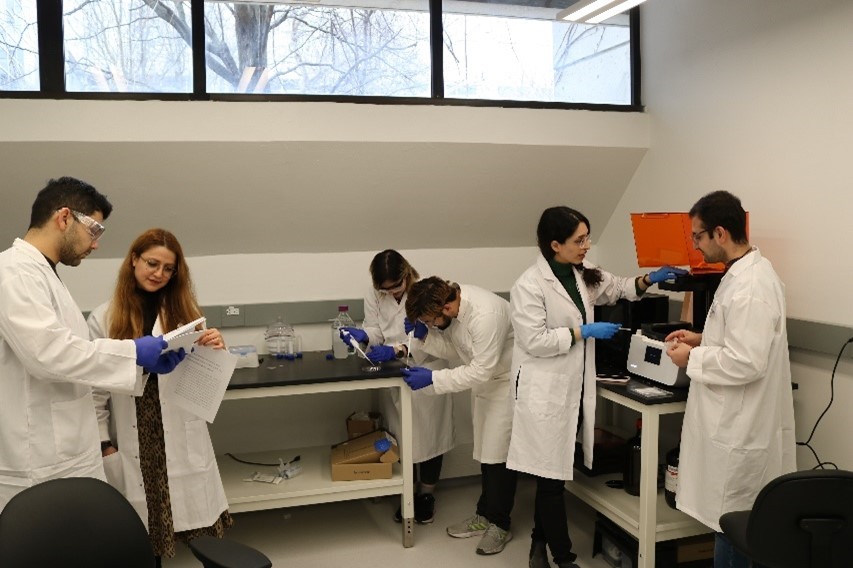A modern research hub at York University’s Lassonde School of Engineering is focusing on scientific innovation to transform the future of disease diagnostics.
Picture state-of-the-art technologies, busy researchers wearing white lab coats and futuristic, artificial intelligence-powered tools with capabilities beyond imagination. That is the Laboratory of Advanced Biotechnologies for Health Assessment (LAB-HA).
“LAB-HA’s mission is to develop wearable biomedical devices for early detection of burdensome diseases,” says Razieh (Neda) Salahandish, director of LAB-HA and assistant professor in the Department of Electrical Engineering & Computer Science.
Early detection of diseases plays a key role in improving patient outcomes and care. Unfortunately, many diseases are diagnosed through complex and invasive processes requiring expensive equipment and facilities. LAB-HA is committed to changing this reality by creating cost-effective, non-invasive and convenient solutions.
It does so through a wide-ranging approach. “Our work applies all kinds of scientific methods in a multidisciplinary approach to disease diagnostics,” says Salahandish. “There are many different scientific disciplines required to support our research. We have chemists and computer scientists working alongside electrical, software, computer and mechanical engineers.”

Researchers at LAB-HA include both undergraduate and graduate students who help lead and support complex research projects and activities, enhancing their academic experiences and technical skills.
Many of LAB-HA’s projects are also conducted in collaboration with leaders in the health science industry, including the University Health Network and St. Michael’s Hospital, as well as startup companies, elevating research impact and capabilities.
Among LAB-HA’s initiatives is a smart contact lenses project. With support by the Lassonde Innovation Fund, the lab is working with the Department of Mechanical Engineering to fabricate smart contact lenses – wearable devices that can non-invasively collect patients’ tears and examine the presence of biomarkers – to support the early detection of various eye diseases and improve patient outcomes.
In another project under review by the Alzheimer Society of Canada, LAB-HA is developing smart goggles that can help diagnose and monitor the progression of Alzheimer’s disease.
Though there is currently no gold-standard technique for clinical and non-invasive detection and monitoring of Alzheimer’s disease, electrical activity in the brain, which can be measured using an electroencephalogram (EEG) test, has been associated with the presence of the disease. Less-explored indicators of the disease include various representations of eye and iris movements, which can be examined using eye movement tracker cameras.
The clinical relevance of these eye movements, EEG signals and iris responses in Alzheimer’s disease will be determined in a first-of-its-kind biomarker discovery initiative establishing a correlation between Alzheimer’s disease and these features.
LAB-HA will use this knowledge to develop smart goggles with embedded cameras for eye tracking and iris response measurements as well as extended electrodes for scalp EEG acquisition. Results will be analyzed using machine learning methods and retrieved on a portable device like a mobile phone.
Another research initiative at LAB-HA, currently in its early stages, focuses on the development of wearable devices that detect inflammatory biomarkers associated with cancers and chronic inflammatory conditions. This work, funded by a Natural Sciences & Engineering Research Council of Canada Discovery Grant, has the potential to expedite chronic inflammation diagnoses, which are the root cause of many diseases. These research efforts can also help reduce the need for time-consuming investigational procedures.
Learn more about LAB-HA on the lab website.


